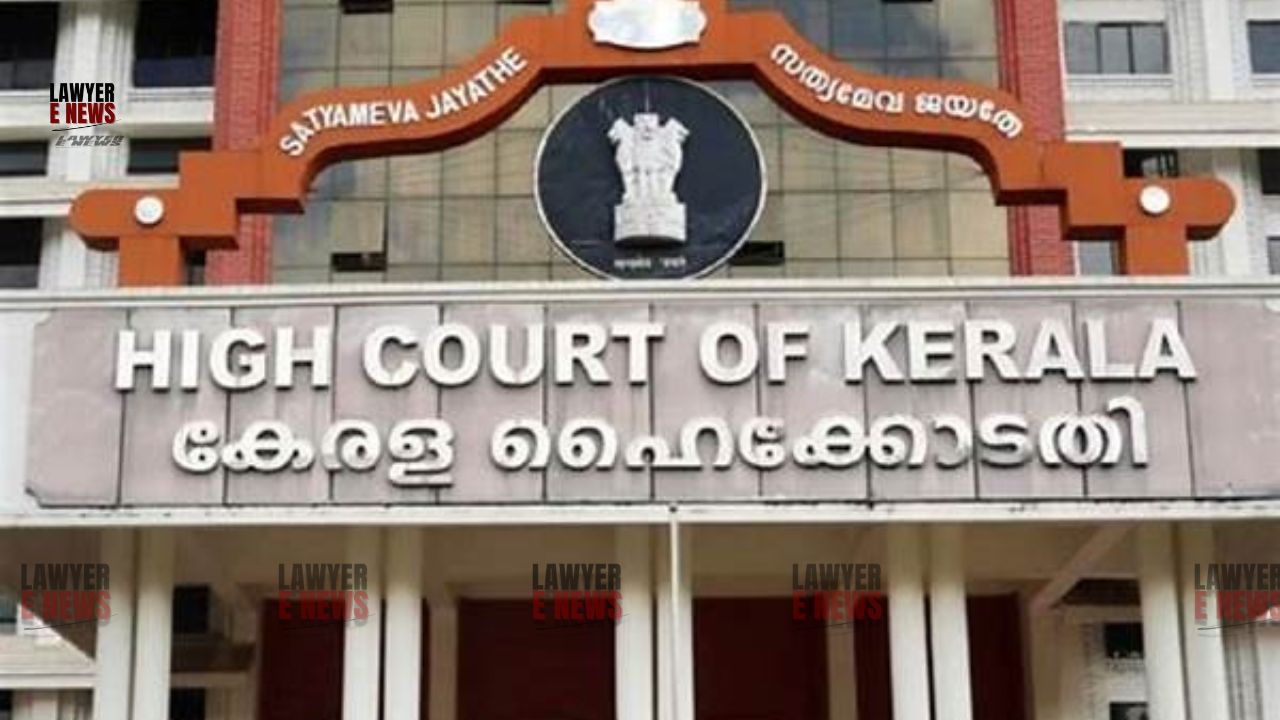-
by Admin
15 February 2026 5:35 AM



Kerala High Court quashed criminal proceedings initiated against noted filmmaker Sreekumar Menon, who had been accused by popular Malayalam actress Manju Warrier of harassment, defamation, and stalking following a professional fallout. Justice S. Manu found that the allegations, which included claims of stalking, obscene behavior, and intentional insult, were insufficient to sustain criminal charges. The judgment emphasized that harassment claims must meet precise legal definitions and cannot rely solely on personal animosity or isolated incidents.
The allegations against Menon arose from a complaint filed by Warrier in October 2019, in which she detailed a series of alleged acts intended to defame her following the termination of a professional association with Menon’s media firm, PUSH Integrated Communications Pvt. Ltd. The two had collaborated on Warrier’s foundation activities and the Malayalam film Odiyan, which Menon directed. According to Warrier, Menon harassed her on set, used abusive language, and damaged her reputation through public comments and private interactions.
Warrier also reported an incident from December 2018 at Dubai Airport, where she claimed Menon verbally abused her using a “filthy word” in Malayalam, allegedly to humiliate her in front of others. Subsequently, she approached the Kerala Police Chief to report ongoing harassment, leading to an investigation and formal charges against Menon under Sections 354D, 294(b), and 509 of the Indian Penal Code (IPC) and Section 120(o) of the Kerala Police Act, 2011.
The primary question before the court was whether the accusations, as stated, met the legal threshold to constitute criminal offenses under the specific provisions of law.
Menon’s counsel argued that the complaint was an attempt to weaponize the criminal justice system due to personal grievances and that the charges did not meet the required standards for stalking, defamation, or obscenity. The defense highlighted that Menon and Warrier were no longer on good terms due to disputes over their business dealings, and the accusations were an extension of this personal discord.
The prosecution maintained that Menon’s behavior during their association and subsequent public and private interactions showed malicious intent, and argued that Warrier’s account was corroborated by witness statements and an audio recording she had submitted.
Justice S. Manu analyzed each of the charges to assess if the allegations provided sufficient grounds for criminal prosecution:
The court found that Section 354D, which penalizes stalking, requires specific acts intended to establish unwanted personal contact despite a woman’s clear disinterest. Justice Manu clarified that “stalking involves repeated attempts to foster personal interaction or monitor communication,” and emphasized that following someone solely to argue or threaten does not fulfill the requirement for stalking.
Citing Jayaprakash P.P. v. Sheeba Revi (2023), the court noted, “A threat or abuse by a man toward a woman with whom he is at odds does not automatically constitute stalking.” The evidence, the court held, did not demonstrate any repeated, targeted attempts by Menon to contact or monitor Warrier beyond their professional interactions, thus failing to substantiate stalking.
The court scrutinized Warrier’s claim that Menon had used obscene language at Dubai Airport in December 2018. Justice Manu pointed out that the incident was reported nearly ten months later, raising credibility concerns. The alleged abuse also took place outside India, invoking Section 188 of the Criminal Procedure Code (CrPC), which requires sanction from the Central Government for prosecution.
The court cited N.S. Madhanagopal v. K. Lalitha (2022) to underscore the legal standard for obscenity under Section 294(b): “The test of obscenity is whether the language used would deprave or corrupt those exposed to it.” The court concluded that the language, while potentially offensive, did not meet this threshold, especially given the delay in reporting and the absence of any governmental sanction for a foreign incident.
Addressing the claim that Menon had insulted Warrier’s modesty by his conduct, the court observed that “mere use of offensive language does not constitute intent to insult a woman’s modesty unless accompanied by evidence of intrusion into her privacy or intentional harassment.” Prior rulings such as Basheer v. State of Kerala (2014) established that general insults do not automatically invoke Section 509.
The court found that the allegations did not demonstrate any targeted or intrusive behavior intended to harm Warrier’s modesty. Justice Manu ruled that the accusations, taken at face value, did not fulfill the essential elements of Section 509, which requires a deliberate intention to insult modesty.
The final charge under Section 120(o) of the Kerala Police Act was dismissed as this offense is non-cognizable and cannot support prosecution independently when other charges fail to hold. The court noted that prosecuting on this ground alone, especially in light of the other dismissed charges, would be redundant.
The Kerala High Court, recognizing the limitations of the allegations in fulfilling criminal statutes, allowed Menon’s petition and quashed the proceedings. Justice Manu concluded that the evidence and allegations stemmed primarily from personal discord rather than objective criminal behavior, stressing the need for clear intent and sufficient proof in cases of alleged harassment.
“Legal standards require that criminal charges be grounded in substantiated facts rather than personal grievances or conjecture,” Justice Manu stated, reiterating that “the law cannot be used as a tool for personal vendettas.”
Date of Decision: November 4, 2024
Sreekumar Menon vs. State of Kerala & Manju Warrier
